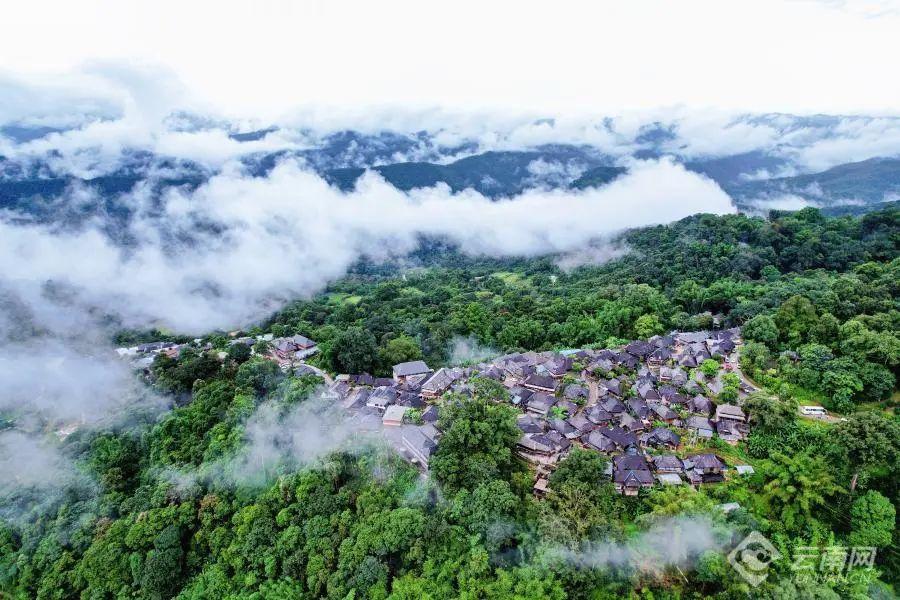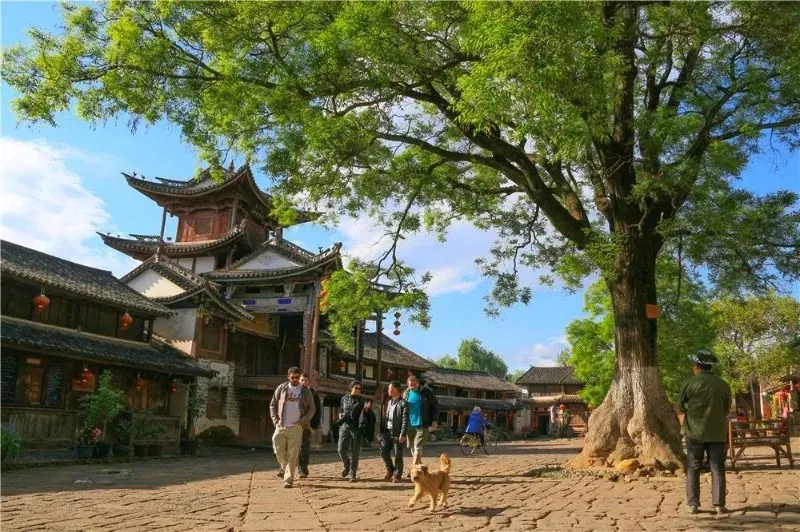Eric's Insight: Why 4 million sojourners choose Yunnan
During the recently concluded annual sessions of the NPC and CPPCC in Beijing, Wang Ning, Party Secretary of Yunnan Province and a deputy to the third session of the 14th National People’s Congress (NPC), stated that approximately four million global tourists sojourned in Yunnan in 2024 to experience its many-splendored life.
The term ‘sojourn’ here means traveling to Yunnan and stay for more than two weeks. This figure above not only highlights Yunnan’s natural beauty but also reflects a deliberate transformation into a haven for long-term stays. Behind this phenomenon lie Yunnan’s abundant tourism resources, upgraded tourist services, and an improved business environment.

The Shuanglang tourist town in west Yunnan's Dali prefecture. Photo/Yunnan Development and Reform Commission
First, Yunnan boasts rich and unique tourism resources. In terms of natural endowments, Yunnan is the most lavish province in China. The snow-capped Meili mountain stands in the northwest, while a well-preserved tropical rainforest lies in the south. The east showcases the essence of global karst landscapes, while the west features the spectacular "Three Parallel Rivers." This province is a paradise for nature lovers.
Yunnan is home to 26 ethnic groups and enjoys a highly favorable climate. While northern China is blanketed in heavy snow, coffee plantations in southern Yunnan bask in golden sunlight and rich aroma. When eastern Chinese regions swelter in summer heat, the meadows of Shangri-La still enjoy cool breezes. The province is therefore loved by those wishing to escape both the summer heat and the winter cold.
Yunnan boasts six UNESCO World Heritage Sites, eight national historical and cultural cities, 777 traditional Chinese villages, and 624 national Class-A attractions. As a result, it has become a popular destination on social media platforms. Its rich natural resources and diverse ecological wealth have made it an ideal host for the United Nations Biodiversity Conference. This has further enhanced its appeal as a top destination for global visitors.

The old tea forests of Jingmai Mountain in southwest Yunnan's Pu'er is included on the UNESCO World Heritage List in 2023. Photo/Yunnan Daily
Second, Yunnan has upgraded its local tourist services. Its tourism appeal has evolved from passive sightseeing to immersive engagement. It has regulated its tourist market and modernized its tourism infrastructure. It has also expanded high-speed rail links to remote areas, such as Shangri-La, and deployed AI-powered multilingual tourist platforms, like the Go-Yunnan app.
Heritage sites, such as the Old Town of Lijiang, now balance eco-preservation with visitor comfort through crowd-management technology and eco-friendly amenities. A focus on “cultural tourism” has also flourished in the region. Homestays in the Hani terraced fields of Yuanyang and tea plantations in Pu’er now offer cultural workshops that connect travelers with local communities.
Such initiatives reflect the global trend seen in Iceland’s community-based tourism. They foster emotional connections that transform brief visits into extended stays. By prioritizing quality over quantity, Yunnan has redefined itself as a destination where exploration becomes a lifestyle.

Sojourners stroll at the Shaxi old town in northwest Yunnan's Jianchuan county. Photo by Wang Zilin
Third, Yunnan has improved its business environment. Once hindered by bureaucracy, Yunnan now thrives as a launchpad for innovators. Streamlined “one-stop” business registration has fueled a surge in startups. Tax incentives for eco-tourism, organic agriculture, and renewable energy ventures attract socially conscious entrepreneurs.
Tan Xin, a travel designer, left his job in Xiamen, located in southeast China's Fujian Province, to move to Yunnan. Now, he has found his own Shangri-La at a digital nomad center in Longshan village, in Anning city, central Yunnan. Since its opening in June 2024, the center has hosted nearly 100 digital nomads from more than 10 countries, including Pakistan, Russia, and the US.
Moreover, improved logistics networks, such as the China-Laos Railway, integrate Yunnan into Southeast Asian supply chains. This integration facilitates cross-border e-commerce. These reforms position Yunnan not only as a scenic retreat but also as a dynamic economic corridor. With national visa-free policies in place, Yunnan is set to attract even more sojourners from ASEAN countries and beyond.

Sojourners explore the tropical rainforest in south Yunnan's Xishuangbanna prefecture. Photo/Xishuangbanna publicity department
Written by Wang Shixue; Proofreading by Zu Hongbing and Wang Huan (YICC); English polishing by Franklin (CICG)